Podcast: Download (Duration: 1:40:01 — 80.3MB)
Subscribe: Spotify | TuneIn | RSS | More
Change is speeding up, but the fundamentals of the indie author business are actually stabilizing. In today's show, I talk about how you can bed down your processes in order to position for the next phase of growth and offer ways to balance your time so you can continue to create, even as you scale.
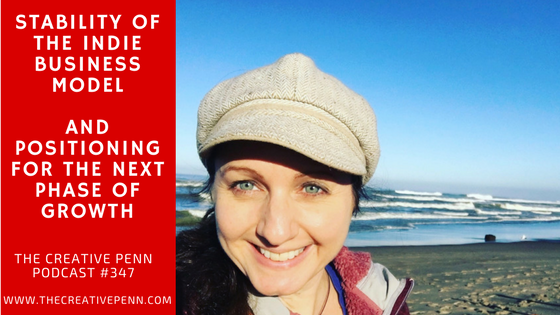 I spent the last week of October on the Oregon Coast at the Business workshop, presented by Kristine Kathryn Rusch and Dean Wesley Smith, along with a number of other speakers. I also spoke this year and co-presented on some panels. Here are some of my thoughts and lessons learned – and pictures from my trip interspersed along the way.
I spent the last week of October on the Oregon Coast at the Business workshop, presented by Kristine Kathryn Rusch and Dean Wesley Smith, along with a number of other speakers. I also spoke this year and co-presented on some panels. Here are some of my thoughts and lessons learned – and pictures from my trip interspersed along the way.
In the introduction, I mention the end of Pronoun, Draft2Digital now distributes to Amazon, and Audible launches a Chinese site.
Today’s show is sponsored by my non-fiction audiobooks, How to Market a Book Third Edition, Business for Authors, How to Make a Living with your Writing and The Successful Author Mindset, available now on Audible. If you need some more inspirational audio that will give you actionable tips to make more money with your books AND stay sane while doing it, check them out here!
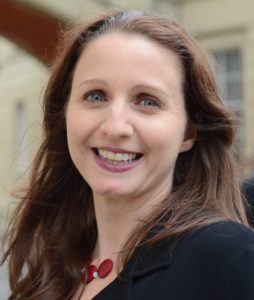
You can listen above or on iTunes or Stitcher, read the notes and links below. Here are the highlights and full transcript below.
Show Notes:
- How the indie author business has stabilized and why we have everything we need to run a scalable, digital, global, publishing business from a laptop with very low overheads – at least in Western, developed countries. Plus, a brief list of the tools I use and recommend if you're just getting started.
- How you can position for the next phase of growth and some of the exciting things coming in the next few years – plus what you need to get sorted right now (i.e. making sure your website and books can be accessed easily by mobile devices and sorting out your global pricing)
- Time, triage and productivity – tips on how to find the time to do everything you want to do as an author and balance that with your ‘real' life!
- Language and worldview differences – between countries, between people who come from traditional publishing, from demographic and age differences. This also mentions my article on whether you are missing out on book sales because of your reading preference, which also has some fascinating comments.
- Seeing the future in San Francisco and Oregon. My thoughts on what I liked about these parts of the US.
You can find me @thecreativepenn on Twitter – or subscribe to the podcast for new information and inspiration every Monday!
Here are some of my thoughts and lessons learned – and pictures from my trip interspersed along the way. [All the pics here on Flickr and also on Instagram.com/JFPennAuthor] These notes are not necessarily from any specific sessions but are more from an extended time thinking about the state of play and what I see coming in the next few years. Sometimes you need to take a step back to examine the bigger picture.
(A) The indie author business model has stabilized
One of the biggest realisations for indies who’ve been around a while is how little things have changed in the last year and how few notes we took on many topics at the workshop compared to previous years. This resulted in me thinking a lot about why that is.
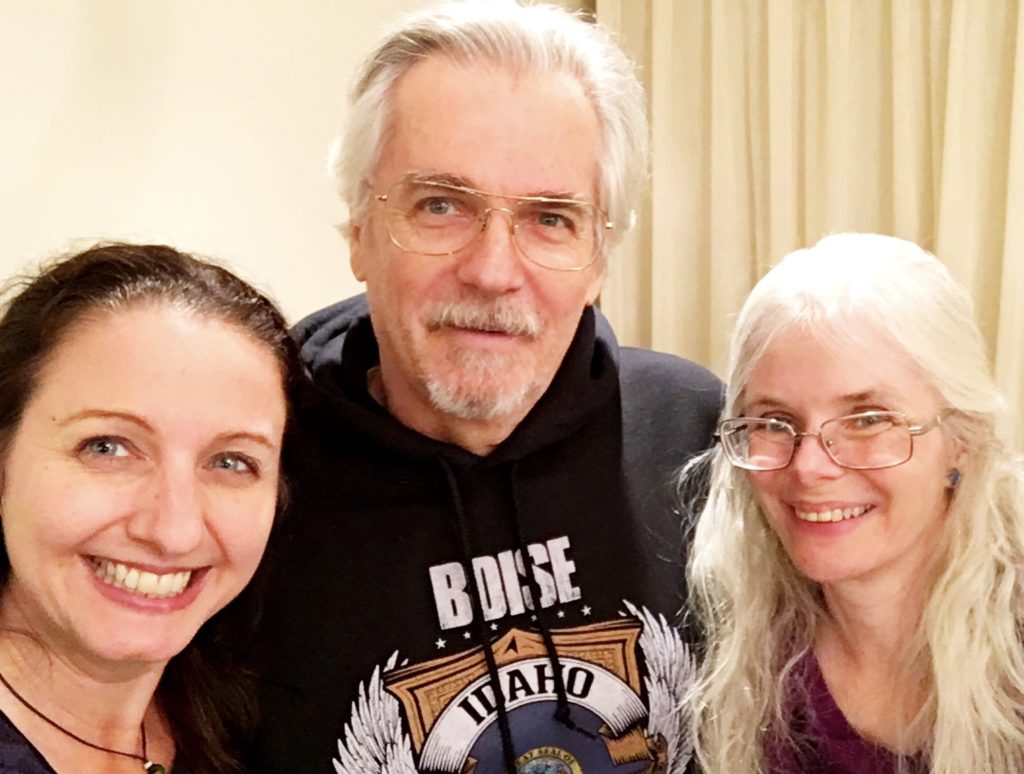
The Kindle had its 10 year anniversary last week, which pretty much marks 10 years of indie author opportunity. Of course, there were always authors self-publishing in print, especially professional speakers, business-people, and poets, but the Kindle really kickstarted the digital revolution, and print-on-demand went mainstream soon after.
Right now, in 2017, indie authors have everything we need to run a scalable, digital, global, publishing business from a laptop with very low overheads – at least in Western, developed countries.
We have:
- Software to help us organise our writing (Scrivener) and co-write/collaborate together (Google Docs, Dropbox)
- A coffee-house culture with free wifi for an office
- Online marketplaces/websites that feature vetted professional editors, book cover designers and layout designers/formatters, many of whom have worked with big publishing houses (e.g. Reedsy)
- Easy-to-use, low-cost formatting software for layout (Vellum, KDP Create, Draft2Digital Templates, Reedsy Book Editor, Book Design Templates)
- Online publishing platforms that enable us to reach readers in 190 countries with multiple ebook formats (Amazon KDP, Kobo Writing Life, iTunes Connect for iBooks, Draft2Digital, PublishDrive, StreetLib, Smashwords)
- Online publishing platforms that allow us to use print-on-demand for paperback books in multiple sizes (Createspace, KDP Print, Ingram Spark) – and Ingram Spark enables hardbacks as well as special print options and discounting to
Street art in San Francisco enable wider publishing distribution
- Online publishing platforms for digital audiobooks – ACX, Author’s Republic, Draft2Digital with Findaway Voices
- Free marketing platforms through blogging, podcasting, and social media that enable us to reach a global audience using our words, images, and our time
- Access to powerful email marketing and paid advertising platforms that enable us to compete with big brands for reader attention, and training courses to help us use them effectively
- Online banking, PayPal and software to help us manage the business side, including global payments and receipts in multiple currencies without the overheads of multiple currency accounts
- Ways to connect with other authors including organizations like the Alliance of Independent Authors, online Facebook groups & forums for every genre, as well as live events for indies like the Smarter Artist Summit, 20Booksto50K, and Fringe events from ALLi and others around the publishing Book Fairs.
Of course, there are new opportunities for streamlining and improvement every week, for example, BookFunnel’s new integration with Selz, WooCommerce and more; or the latest book marketing tactic that’s working right now, but at the essential level, we have a business model that works for independent authors and the overheads/running costs are tiny compared to brick and mortar stores or large publishers.
It may take you a while to put your processes together, but the roadmap is there and the author business is, at heart, the 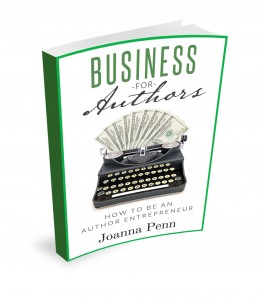
Given that the business model is now stable, it is not so surprising that authors in the established markets of US, UK, Australia and Canada, have been reporting stabilising or shrinking incomes. The number of authors and volume of available books continues to grow, and everyone is a publisher now. Anecdotal evidence is that this income slump is happening to even the big-name traditionally published authors, many of whom are going hybrid to try and supplement their income.
So how do you make the most of stabilization?
(1) Get your processes sorted out and your freelance team/virtual assistants in place
Publishing should be the smallest part of your process, and once you’ve done it a few times, it becomes pretty automatic. The writing and marketing is where the time goes, but you can also structure these so you spend less time doing things you don’t enjoy. You can build a scalable business by outsourcing tasks so you can focus on what is uniquely your part i.e. the writing 🙂 More on this in section C below.
(2) Make the most of your current intellectual property assets
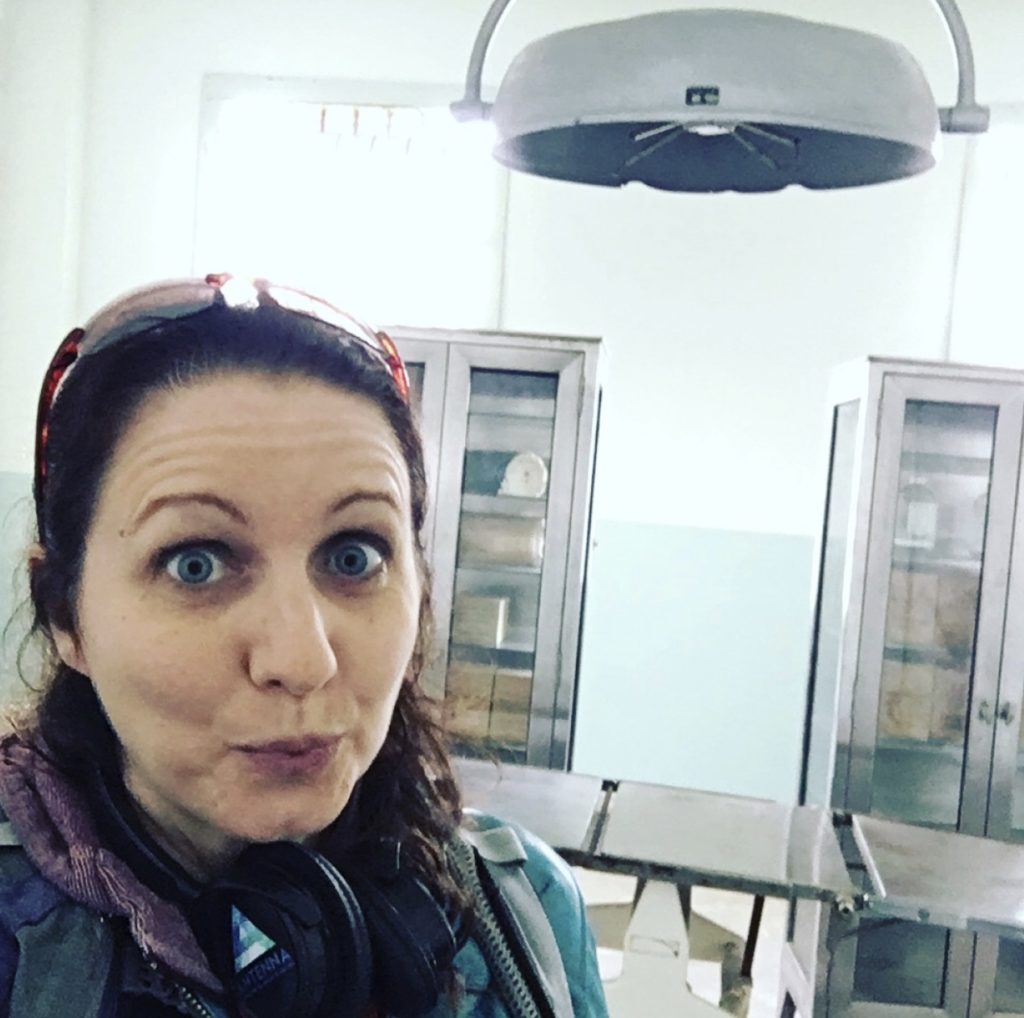
Do you only have ebooks in KU?
Do you only have print books on Createspace?
Have you adjusted your global prices to make the most of sales globally?
If you have ebooks that are selling well, especially if they are non-fiction and you have a platform, have you considered doing audio?
You have to make decisions for your own business, but I’m going through all my IP assets (books) and making sure I have optimised each in terms of the formats, countries, and distribution platforms so I can position for the next phase of growth.
As digital and mobile expand in the global market, print is gaining ground in the current markets.
Dean Wesley Smith talked about a potential scenario where B&N goes under in the next 2-3 years and all those customers are suddenly under-served and looking for print books. Are you ready for those customers?
I’m also looking at two areas I haven’t invested enough time in so far: licensing for translation rights, and also TV/film. The latter is a huge growth market for adaptations, especially as more channels are opening up all the time. Disney and Apple are the latest to announce more exclusive content, in addition to Netflix, Amazon, YouTube Red, and Hallmark expanding their video production side. Fast Company magazine (Nov 2017) stated that “Netflix wants to become Disney before Disney becomes Netflix.” The basic principle is: don’t be dependent on licensing other people’s intellectual property, create your own.
I’ve just split this IP Licensing out in my Profit & Loss statement. It’s a very tiny amount right now, but what gets measured, gets managed. So now I will see it regularly and it will remind me to grow that side of the business.
(3) Continue to grow your backlist
Keep writing. That doesn’t change, and won’t change, even with the disruptions on the horizon as below.
(B) Position for the next phase of growth and disruption
Regular readers/listeners will know of my positive, futurist slant, but it does feel like the lull before the next big shift right now – and I don’t mean in publishing. I mean societal shifts that will change the way we live and work in fundamental ways – blockchain and digital currency, Artificial Intelligence, self-driving cars, 5 billion more people on 4G internet, just to name a few, as well as backlash against these technologies which have resulted in the swing of the political pendulum in many countries. This may be a 5 – 10 year change, but that is coming up fast.
It does sometimes feel scary, but disruptions bring new opportunities if you are ready for them.
Look again at my list in (A) above – those tools were not around 10 years ago. I could not have run this business 10 years ago, and even five years ago it was a lot harder.

Blockchain technology enabling trusted, global contracts and payments without intermediaries.
This type of transaction is already disrupting banking and may remove the need for high banking fees as we do business directly with customers globally, with added security and contractual obligations encrypted on the Blockchain. It has applications for intellectual property rights, micro-payments, and licensing through smart contracts. More on this at the Alliance of Independent Authors Blockchain for Books initiative.
AI and machine learning.
As I have discussed before with Thad McIlroy on the future of publishing, I am REALLY looking forward to the book itself as meta-data. Why do I have to find keywords to target my marketing, when the algorithm itself should understand who would like my book, the emotional resonance or how useful it is to certain people. As machine learning really hots up, which it’s starting to with the recent Alphabet DeepMind self-learning AI, I’m expecting that discoverability will shift completely for books, as well as other forms of content.I’m also looking forward to having a centaur-like approach to using an AI assistant, as per the centaur-chess masters which combine human with AI to beat humans or AIs competing separately.
5 billion new people on the internet.

Amazon’s investment in India and also in the Middle East are early signs of this. The tech giants investing in bringing streaming internet to the world include Facebook with Free Basics/internet.org, Alphabet with Google Loon, and more. These new shifts, including digital currencies and mobile micropayments, will bring new consumers to the market and more readers for our books.
The growth will be mobile and digital.
Most of the new internet users will access through mobile technologies. They are ‘leapfrog’ nations, moving straight to wireless and mobile/tablet systems, and never using desktops or even laptops. In 2016, global internet access on mobile devices overtook desktop/laptop access, so this is happening already.
Demographic changes.

Kris Rusch mentioned seeing the current horror boom coming years ago as young people devoured RL Stine’s horror books for kids. This explains Stranger Things and the reboot of IT as well as supernatural horror movies.
People’s preferences are shaped young, and perhaps my own love of action thrillers is shaped by early consumption of Wilbur Smith, The Hardy Boys, and James Bond. What else might be coming based on Millennials rising up through the ranks and Boomers getting older?
By 2025, Millennials will comprise three-quarters of the global workforce. I’m Gen X and we have no power as there are so few of us, but I welcome our future Millennial overlords (!) as they are much more open-minded about gender, sexuality, race, and technology, so we should see more portrayals of under-represented groups in the future as well as some awesome tech.
Some more interesting demographic shifts from catalyst.org: Millennials are now the largest living generation in the US, Japan and Europe are super-ageing populations and the workforce is shrinking – which may mean they/we have the fastest uptake of robot care-workers, Millennials are increasingly likely to be foreign-born with a first-language other than English.
So how can you position for the next phase?
(1) Make sure your books are available globally with local pricing applied.
For example, check your prices on Amazon.in and compare to the bestseller list (It’s in English, go ahead, check it out!) You will likely find your books at over 300 rupees while local bestsellers are at 9 – 49 rupees. I’d really like the vendors to allow a 9 rupee price (Amazon, Kobo, iBooks – if you’re listening, please sort this out?!)
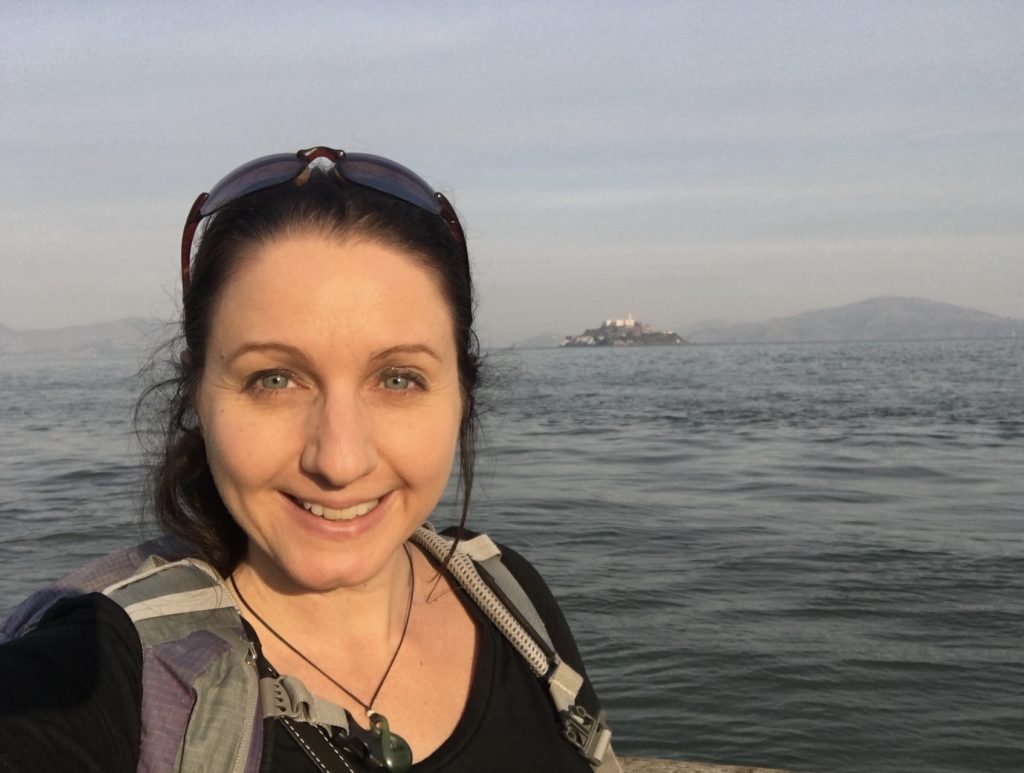
(2) Build your own platform for direct access to your audience.
More authors are going to be selling direct as tech changes enable easier peer-to-peer transactions, plus it will protect against the potential changes coming through inevitable regulation of the big data companies that we are already beginning to see.
Building a trusted personal brand with a website where people can buy directly from you will mean you can hedge against the platforms being disrupted.
I am already making 9% of my book sales revenue through direct sales, and I expect this to grow with global expansion as many developing countries are not even able to shop on US behemoths like Amazon. I’m considering building a new hub for my fiction platform, but that will wait until later in 2018 when I write a business plan specifically for it.
(3) Keep up to date with changes.
Kris Rusch mentioned in one panel that the reason sci-fi authors have some of the worst websites is that they were early in the market and built them before awesome tools like WordPress became available. You can see the same issue in how the huge banks and airlines are struggling with tech now as it is so old and will be hugely expensive to upgrade, compared to the ease of start-ups using the latest tools – who will also be overtaken by new companies in 5-10 years time. This made my ears prick up as I am often early into markets and make mistakes and then miss out when mainstream does happen.
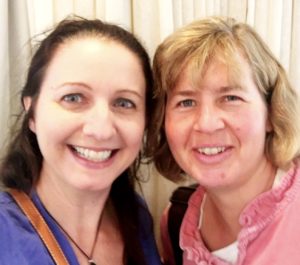
I got into translations early, lost money and am gun-shy, but now I need to get back into the game because it’s becoming more viable – at least for non-fiction, which needs less marketing. I got into audiobooks before ACX opened up to the UK and am still locked into a contract that takes a percentage of my audiobook earnings, whereas if I had waited 6 months, I could have done it myself.
But equally, the reason I have the business I do now is because I started blogging about self-publishing in 2008 before it was mainstream, and podcasting in 2009 before the audio boom. So I have benefitted from being early too. There is clearly a balance between the early adopter advantage and jumping too soon – or too late.
Be curious and open to learning about the next wave of change, so you can be ready to jump aboard. Or just keep listening to the podcast, since I share what I learn every Monday!
There are some changes you should definitely be making soon – for example, making sure your website is mobile-optimized and looking at implementing https, as sites without these things will soon be penalized by Google.
Also, make sure your books can be bought on mobile devices and that they are available in multiple ebook formats globally and through print-on-demand. These are the basics to make sure you have in place for 2018.
(4) Continue to grow your backlist.
Keep writing. I might have said that already!
(C) Time, Triage and Productivity
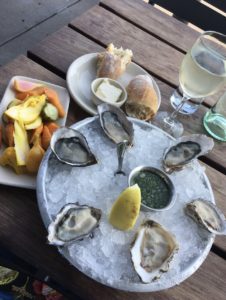
There was a lot of discussion about the lack of time to do everything possible as an indie author, especially in comparison to the slow-moving world of traditional publishing where authors spend a lot of time waiting. This will not stop, and in fact, change will speed up and opportunity will proliferate.
There’s always more to do and never enough time, so how do you triage your possible To Do list?
Here’s my method:
(1) Identify your values as it relates to your work.
For example, freedom is my number one value, which shapes why I want location-independent, why I don’t hold physical stock, and why everything has to be scalable because I don’t want employees. Perhaps yours is family, and you want to optimise everything for more time to spend with your kids. What’s your defining value?
(2) Identify your definition of success – for this book and for your author career.
For example, if you really really want to win a literary prize and receive critical acclaim, then ditch the indie author route right now and go traditional. If you want to make a six-figure income with your writing, then indie is great for you. There are many gradations between these extremes, but if you don’t know what you ultimately want, you’ll never get there.
(3) Write everything down to get it out of your head.
I use Things app for myself, Asana for virtual assistants, weekly business meeting minutes for focusing tasks, an annual business plan, plus a quarterly meeting to re-focus on the big picture. I also have journals and pages of notes from books, podcasts, live events, conferences etc. But all of these have been processed from consumption to creation – so I turn notes into blog posts, books, or tasks. I get everything out of my head onto the page in some form.
(4) Process the list of things to do against your values and your definition of success.

For example, Kris talked about doing mass market paperback versions of the WMG books and I just couldn’t understand why. Turns out we read differently, but we also have different fundamental values around physical objects. Another example is audiobooks, as I have made my money back quickly on non-fiction, but not with my fiction. So although there is opportunity in fiction audio, I am choosing to focus on non-fiction only in 2018.
(5) Apply the 80:20 rule, or the Pareto Principle
This states that 80% of the effects result from 20% of the causes – or that 20% of your work results in 80% of the profit. Lots of indie authors run around obsessed with minutiae, the things that will fade quickly, but what about the big-ticket items that will last? What will make the most impact? What will make the most money? What will do the most to bring you closer to your definition of success?
(6) What can you outsource?
Consider what is the best use of your time and look at outsourcing tasks you want to get done, but don’t want to (or shouldn’t), do yourself. I have been using SELZ for direct sales for years, but now BookFunnel has a new delivery mechanism, so I need to do that technical integration. I could do it myself but I’d rather pay someone else.
So that’s gone into Asana for outsourcing. I’ve been increasing the number of tasks I automate or outsource in order to spend more time creating. In fact, a number of people asked how I get everything done and when I sleep, but I sleep a lot, and much of what you see now has a process involving tools or other people so I only do the creative part.
(7) Sort out your writing and author business schedule.
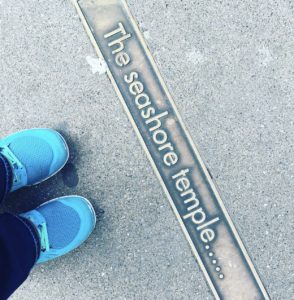
Both Kris Rusch and I write fiction in the same way, in that we can’t organise which book we’re writing in advance. It just emerges – which makes us unstructured in a creative sense.
But we are both very structured in the organization of a schedule that enables creativity, as well as physical health, and business, plus marketing tasks. I have JFPenn time in my schedule on Google Calendar, and I schedule meetings and time off months in advance. I’ve already booked time out of the business side for 2018 – a week every month, and the whole of December. That means no meetings or interviews, and more time for creation.
“Be regular and orderly in your life, that you may be violent and original in your work.” Gustave Flaubert
(D) Language and world-view differences
Americans and Brits are similar in many ways, and of course, within those categorisations are many sub-divisions, even without going anywhere near politics!
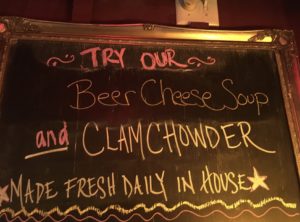
But there are also different world-views between authors, depending on whether you come from the traditional publishing model, or you chose indie-first, plus demographic differences.
I don’t come from traditional publishing. I chose indie from the outset because I’m a business-woman and I literally don’t understand some of the world views of traditionally published authors. I also don’t have the vocabulary.
For example, Kris Rusch pointed out that a print box-set is actually called an Omnibus, but my argument was that I have an ebook boxset with 3 books in it, and a print edition that is attached to that ebook boxset and an audiobook boxset too, so why do I have to call the print edition an omnibus. (See ARKANE boxset 1).
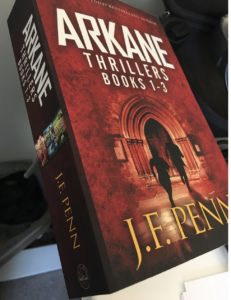
This resulted in much discussion on what a boxset is vs a bundle vs an omnibus, and it became clear that indies are often just doing stuff and then coming up with language later. Much like the term ‘indie publishing,’ which used to mean an independent publishing company, not an author-publisher, a term that Orna Ross uses at the Alliance of Independent Authors, because she comes from the industry, but I term I don’t use. I love the term indie author!
My business background and vocabulary was also queried by some attendees and I realised that some of the language I take for granted is not understood by many authors, and this is why some have trouble building a long-term business, focusing instead of short-term spike sales.
I use the word ‘scalable’ a lot, which comes from the start-up world.
It means that the business can grow bigger than the effort put in. A book is a scalable intellectual property asset in that you create it once, and it can be turned into multiple streams of income, sold to millions of people, and turned into all kinds of subsidiary products like games, film/TV, translations etc. You create it once, sell it forever. awesome!
Scalability is a fundamental principle if you want to build a business as an author – creating and licensing IP rights is based on valuing your assets over the long-term, and most authors give them away for practically no money and a pat on the head by a traditional publisher.
Another business fundamental is the difference between REVENUE and PROFIT.
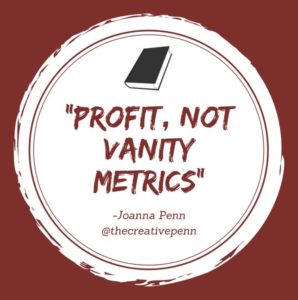
There are many voices in the indie sphere talking about how many books they sold (e.g. I sold 10,000 books last month), and how much revenue or income they made (e.g. I made $10,000 from my books last month), but the key point for a sustainable business is PROFIT, which is revenue minus expenses.
So if someone made $10,000 in revenue from book sales last month, but their expenses were $9000, then they only made $1000 profit. Many authors don’t factor their time into this profit calculation either.
It turns out that many indies are not even doing their accounts every month, or structuring their business for tax efficiency, investing cash for future dips, or paying themselves a salary or superannuation.
So, if you are missing some of these basic business definitions, check out Business for Authors: How to be an Author Entrepreneur, available in ebook, print and audiobook (which I narrated!). This is another important step in positioning for future growth, and something I will be doing some lecture-style mini-courses on soon.
(E) A Little Extra: Seeing the future in San Francisco and Oregon

This section isn’t strictly about publishing, and I love England, but I was impressed with the way that San Francisco and Oregon are ahead in many ways. I did some ARKANE book research in San Francisco, and you can see all my photos here.
Here are some of the things I noticed that we’re only starting to see in the UK and seem a little futurist:
- On-demand and super-easy Uber access. All the drivers I spoke to were happy with it, and as a customer, I loved being able to get an Uber within minutes all over SF at almost 50% cheaper than a normal cab. It was brilliant to be able to pay with the app and my business card without dealing with receipts and also great to have my rating carried over internationally. Clearly, Uber has some challenges, but as a customer-focused company, they get my vote. The recent London license ban won’t last, and within 3-5 years, the cars will all be self-driving.
- USB charging points. As an international traveller, this is awesome. You don’t need an adaptor, you can just use USB. I don’t know why this isn’t the common way of providing charging in airports and hotels globally. Also, I noticed a lot of WeWork and other co-working spaces, marking the continued rise of entrepreneurs.
-
Ghiberti Doors at the Grace Cathedral, San Francisco Artisan everything. The sourdough bread really is something special in SF but I also noticed that independent coffee-houses, bookstores, as well as artisan cheesemakers and all kinds of little shops were more prevalent than big name stores. For example, there doesn’t seem to be a Barnes & Noble in downtown San Francisco, but there are multiple independent bookstores.
- Legalization of cannabis. Weed was everywhere in Oregon, although it was banned from the workshop as we were there to work 🙂 The UK will miss out on this growing new economy unless it sorts out legalisation in the next few years. Oregon also has the Death with Dignity Act which allows terminally-ill Oregonians to end their lives through the voluntary self-administration of lethal medications, expressly prescribed by a physician for that purpose. California, Colorado, Vermont and Washington also have that law. I support Dignity in Dying in the UK and I can only hope that these laws will be passed in the UK in coming years. Bring on the Millennial overlords!
- Much more of a focus on sustainability. There were so many vegetarian, vegan, gluten-free, meat-free, lab-grown meat articles and options. Everything was recyclable and focused on sustainability in San Francisco. There was also no visible obesity unlike a lot of US cities I have visited. Definitely a great place to live and somewhere I will be returning to in future years.
So that is my mega-round-up of what I’ve been thinking about over the last few weeks and it was great to have some time on the Oregon Coast to consider the bigger picture. Thanks to Dean and Kris for providing the time and space for a business focus, and to all the wonderful attendees, who I know will have very different notes to me!
These are the thoughts shaping my business plan for 2018, and I’ll talk about more detail as we come to the end of the year. I hope this has given you some ideas and I look forward to continue sharing the author entrepreneur journey alongside you.
Do you have any thoughts or questions from this article? Please share below in the comments and join the conversation.


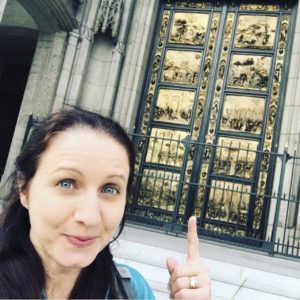


Thanks for this great write-up for this year’s Oregon Coast Business Workshop. I was sorry to have to miss the event this year but I am grateful for your summary.
I have been thinking a lot about business models for writing entrepreneurs lately. I wonder if we are consolidating toward one model. I have been exploring the idea that there are different business models depending on where the author is in the maturation of their business, on their financial situation and on their understanding of the publishing industry.
I knew I would miss a lot not attending this year’s conference, but mostly I miss getting to spend quality time with a group of amazing writers.
We missed you, Tonya! I definitely think things change over the arc of the author journey – I need to update this post that outlines the idea:
https://www.thecreativepenn.com/2014/07/08/arc-of-the-indie-author/
I absolutely loved this post Joanna! You inspired me to pause and write down what I achieved in 2017 and what I want for 2018! As ever, your journey is very inspirational. Like who thinks about pensions, annuitants and P&L sheets??? Not me! lolol. Would love to hear thoughts like this biweekly. It would be great if you did a business podcast where you break down terms like that in reference to being an author. Of course, there are several business podcast/ books out there but they speak from a more logical, bottom line, rational stand point that is hard to follow. Maybe you can create an online Business For Authors workshop adapted from the book? I’d pay to attend. Great show!
I’m so glad you found it useful, Aleshia 🙂 I will be creating some new ‘lecture’ style mini-courses around business topics because it does seem to be needed for authors, so watch out for that!
I do have the audiobook of Business for Authors in the meantime!
I really enjoyed this podcast. Your podcast led me to WMG Publishing and their courses. Thank you for being so inspiring; I love your futurist thinking. More of this type of podcast would be great, imho. 😉
I’ll be visiting Yorkshire/Beverley, UK in less than two weeks and I’m looking forward to all the writing inspiration I will find in a new environment. (Yes, there is a bit of crazy enthusiasm for my first trip out of the US.)
wow that’s a long podcast, it made me miss your webinar 😀 (just lost track of time) Lots of interesting stuff as always.
Glad it was worth the listen 🙂
Thanks for another great post! With the recent closing of Pronoun, I’ve been realizing how often the indie publishing game changes. I look forward to automating more and hiring out tasks, like you mentioned. I also loved the Oregon shout-out because that’s where I live now and it’s a pretty great place, glad to hear you enjoyed your time here.
Oregon is a cool place, for sure 🙂 Glad you enjoyed the show.
India prices on all my books all changed to 99 rupees. Thanks for the suggestion.
What a great podcast. When I heard you say someone had paid off their car with their writing income, I got really bummed! I do not have that kind of income!
But it also kicked me in the butt to getting a plan going. I even took notes from this podcast, went into past podcasts and ordered the ebook of Business for Authors (I had to audio). My son has done amazing work on his business plan and knows his business inside and out (reclaimed wood and design). It’s powerful.
So … digging in. Good timing to get a business plan set up for 2018. Thanks for all you do, Joanna.
The income arrives in time – but you certainly need a number of books and a certain level of readership before you make that kind of money. So don’t worry, you’ve made a plan – now execute it, and be consistent over time, and the money will come. I’m so glad the episode was useful for you!
Hi, Joanna! Great post. Like you, we have been moving toward expanding our IP into the world of licensing. Do you have any resources you might share re: getting work in front of buyers of TV/Film options, producers, etc.
Seems like one of the barriers for the author/entrepreneur on a budget is we can’t afford to attend all the conventions (Lincensing, ComiCon, etc) to make our pitch.
What’s your advice?
Another awesome podcast
I normally listen to the podcast on a 7-8km walk around the block here in NZ but this episode took me around the block, into the shower and I am currently changing the Indian price of my books (as it finishes).
I woke up this morning and printed off an A4 paper that said “What does my future look like in a year?” and I started the day building spreadsheets and planning. (including a column for VAs).
This episode could have been recorded just for me.
Currently working on Non-fiction but planning to start my Fiction Series at Xmas and subscribe to your novel writing course.
Enjoyed the webinar with Mark Dawson last week and planning to sign up for that when it opens again in 6 months.
Love hearing your progress on your business journey.
Also listened to your “how to build a website course” and built an author site this month.
Keep up the good work
Ged (pronounced JED 🙂
I’m so thrilled to hear that it was useful to you, Ged 🙂 All the best with your plans!
Great show. Even better the second time I listened. More like this is a very good idea.
Thanks Chip 🙂 Glad you found it useful. It took a long time to prep so will be sporadic!
Superb overview. Sent this to my email list, very useful for those who don’t have ton of experience in selfpub yet.
Good to see stabilization and possibilities. Except the author website part, those are sadly, lagging. If covers are catching up easily with trad. publishing then indie sites aren’t. Hopefully, that improves in 2018 a lot..
Hi Joanna. Great article! There is one point I would like to make about pricing your books in India.
I was listening to a podcast between Jim Kukral and another Indian author (whose name I’ve forgotten) about marketing in India.
On the show, he asked us not to follow pricing of traditionally published books. Apparently, there is a price war happening among traditional publishers in India and they (traditional publishers) have deliberately reduced prices (not sustainable in the long run) to keep other authors out of the business. Some best-selling books are as low as Rs. 5 (8 cents in USD) which is ridiculous (Almost free for the readers and bad for the authors).
He suggests that you should price your books in the same way you do for your US markets. $3.99 (between 200-300 rupees) seems to be fine for India.
In any case, Kindle owners in India seem to come from the upper middle class background who are in any case not so price sensitive. We are used to paying $3.99 or $4.99 for authors like Dan Brown, Stephen King, etc. Plus you’ll also make a decent sum of money. That’s my opinion. 🙂
Thanks Prasenjeet, but when I was in India, I found that paperbacks of the top authors like Chetan Bhagat were 150 rupees, so I can’t see that ebooks should be double that. Also, people are starting to see sales in India when pricing at 49 rupees, and so much of it is discovery at the early end of the digital market. Like the US in 2009 was 99c ebooks all round in order to get noticed. I think the same applies in India – at least for fiction. For non-fiction, I agree you could be higher.
Thanks Joanna for your viewpoint which I really appreciate. However, you said that authors are starting to see sales in India when pricing at 49 rupees. Well, I too have been seeing an uptick in sales and my books are priced at 270 rupees. My sales in India are primarily in fiction.
A few years back I saw no sales in India. So, the reason could not necessarily be pricing but opening up of the Indian market to Kindle. Like you, there was a time when I too had priced my books at 60 rupees. What happened was that my sales remained the same but my revenues declined drastically. When I raised my prices, there was no change in my sales but my revenues shot up.
At 270 rupees, I make around 80 rupees per sale at 35% (since I’m not in KDP Select). At 49 rupees, I expect to make around 16 rupees per book. Which means I’ll have to sell five times more at 49 rupees to equal my revenue at 270 rupees. Which I know is not going to happen at anytime or any rate. 🙂 But this is just my opinion.
If you and other authors are happy with pricing at 49 rupees, I can’t really argue with that. 🙂 But don’t go by Chetan Bhagat books. I don’t know what the publisher and the author would be making out of their kindle books. The only way to make money at that price is if you’re selling in millions. Either that, or they’re making money out of the movies which depends on what rights the author signed away.
If you’re not Chetan Bhagat and don’t expect to sell like him, then it would probably be wise to increase your prices and see what happens. Again, just my opinion. 🙂